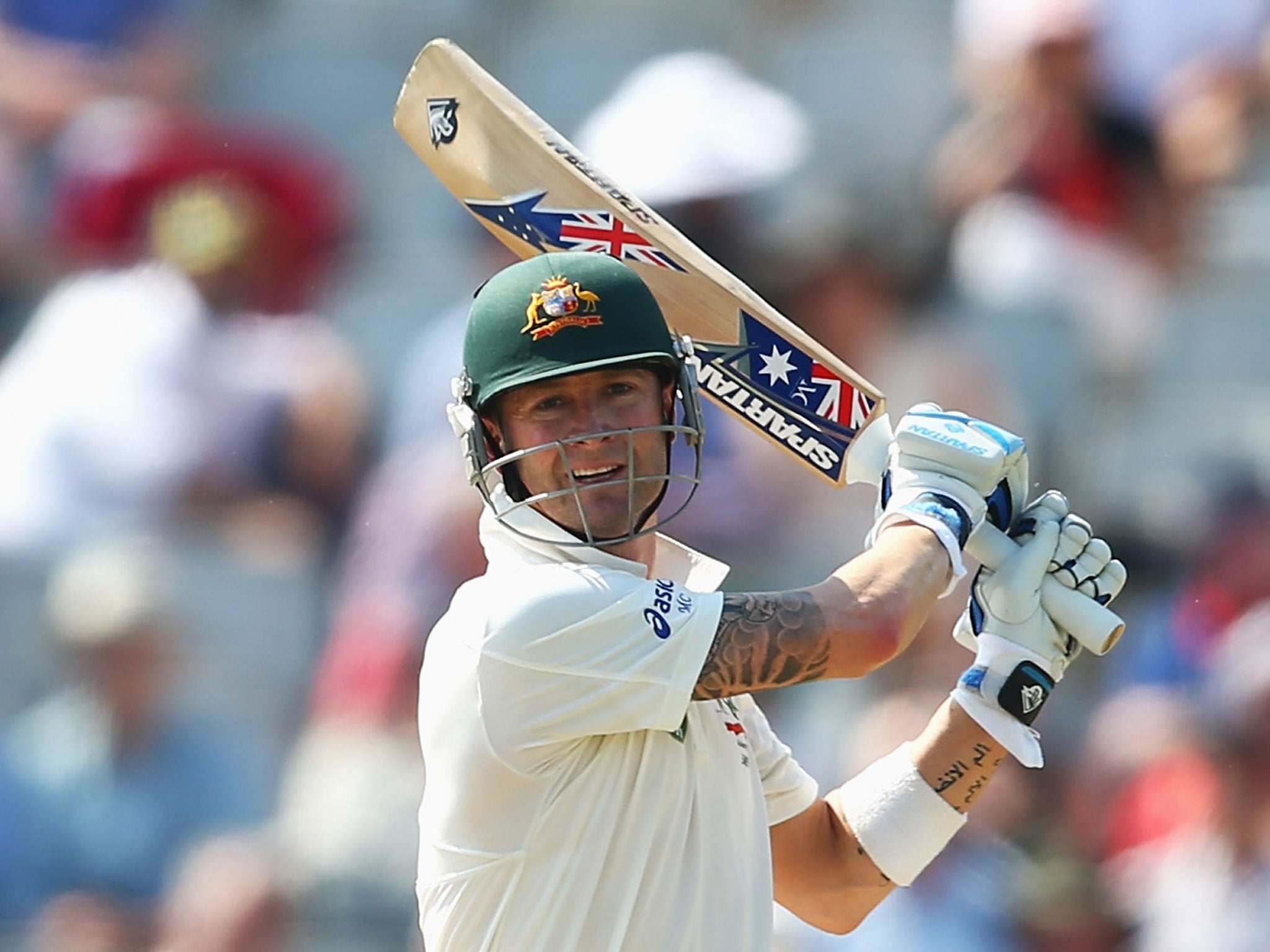The Aussie Angle: Captain Clarke remains his team's bedrock and the tide may be turning in his favour

Your support helps us to tell the story
From reproductive rights to climate change to Big Tech, The Independent is on the ground when the story is developing. Whether it's investigating the financials of Elon Musk's pro-Trump PAC or producing our latest documentary, 'The A Word', which shines a light on the American women fighting for reproductive rights, we know how important it is to parse out the facts from the messaging.
At such a critical moment in US history, we need reporters on the ground. Your donation allows us to keep sending journalists to speak to both sides of the story.
The Independent is trusted by Americans across the entire political spectrum. And unlike many other quality news outlets, we choose not to lock Americans out of our reporting and analysis with paywalls. We believe quality journalism should be available to everyone, paid for by those who can afford it.
Your support makes all the difference.There was a moment at Lord's during Australia's recent Ashes debacle that spoke volumes for Michael Clarke's state of mind.
Clarke was close to tears when it was put to him that the previous Australia captain who lost five Tests on the trot had promptly fallen on his sword. Presumably Clarke would not follow the lead of the tear-stained Kim Hughes in 1984, he was asked.
"Presume nothing," Clarke responded bleakly, then saw enough gallows humour in the situation to discover a laugh that had been missing for much of the tour.
That may well prove the low point of Clarke's tenure. It may also be the moment that marked the start of Australia's recovery after several years of mediocrity and chaos. It is difficult to consider that Australia could be as disorganised and morale-sapped as they were after the first two Tests this summer.
They have not lost at the ground the locals call the Gabbatoir since before Steve Smith or Joe Root were born, while Brisbane rain and an Adelaide drop-in that could resemble the Faisalabad freeway on which Greg Chappell once attempted to bat for all five days may turn this into a three-match carnival.
Clarke remains the critical figure in the contest. Steve Waugh may well have identified Smith as the player to watch and one capable of turning a match in an hour or a session. Yet Clarke's class and batting prowess in all conditions make him the prize scalp.
England could win the Ashes for a fourth consecutive time with Clarke making a substantial contribution; Australia could not hope to win without one.
When Clarke was made a selector two years ago – following the management report that found Allan Border, Mark Taylor and Steve Waugh all concurred on the need for the captain to have a say in which men played for him – it took Australia back to 1936 when Don Bradman was also charged with picking his own teams.
The two players have strong parallels – both were head and shoulders above the next candidate as the best player in their team, they both scored runs in remarkable volume, their calculating nature managed to alienate many of the players with whom they shared a change room and they both wielded enormous power through their presence on the selection panel.
Clarke's biggest issue is not likely to come from searching for his next run. Ten centuries and an average of 62 as captain underline his rare qualities. Clarke's brittle back remains the most valuable real estate in Australian cricket.
He did not tour India for the recent one-day series, reasoning that rehabilitation for an aching spine leading into what could be a career-defining series took priority over three crowded weeks of white-ball frolics.
Clarke tended to his back with customary diligence, got a sighter or two in Sheffield Shield cricket, where handy knocks of 88 and 43 helped shed any pre-season rust, and girded his loins for the battle ahead.
George Bailey has been called up to bat at No 6 after a decade of steady improvement in state ranks and a remarkable flowering in one-day cricket but it is his character and decision-making ability, as much as his skill with the blade, that have earned him a Test role.
Clarke may get through this series and the next two years as the overseer of Australia's long-awaited recovery. Equally, his degenerating back could play up next week and place Australia in a position where they had to find a new captain at short notice.
Clarke could lose the Ashes again in the coming weeks, he could experience another back relapse, yet the one thing most unlikely is that any pain he suffers will be from a self-inflicted sword wound.
John Townsend is Cricket Writer for 'The West Australian'
Join our commenting forum
Join thought-provoking conversations, follow other Independent readers and see their replies
Comments